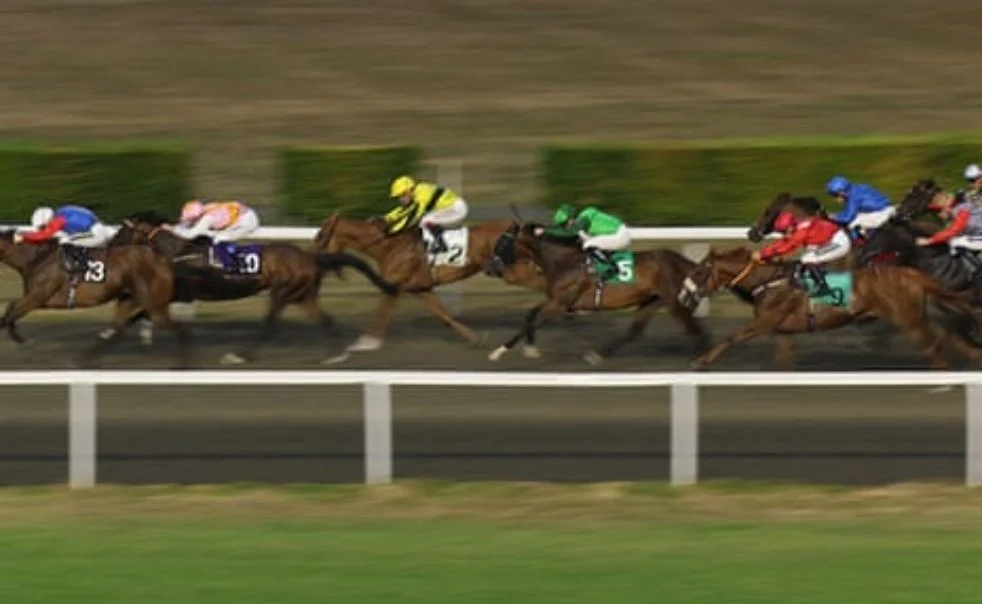Rachel Reeves Plans Gambling Tax Rise in Racing Spared

Elle
Nov 7th 2025
Likes
Share:
Chancellor Rachel Reeves is preparing to protect Britain’s horse racing industry from a wider gambling tax hike in her November 2025 Budget, according to government sources. The Treasury’s upcoming plan is expected to focus on raising duties for slot machines and online gaming, while leaving horse racing bets largely untouched.
Officials are working on a £1 billion tax package designed to raise revenue by increasing the Machine Games Duty and Remote Gaming Duty rates. The proposal is viewed as a politically manageable measure, as online gambling has expanded by about 60% over the past decade. Treasury insiders believe that targeting online casinos and machine betting will generate funds without directly impacting traditional racing.
At present, the Machine Games Duty is 20%, and the Remote Gaming Duty is 21%. Several industry sources have speculated the new rates to escalate significantly and one of the estimates suggests that Remote Gaming Duty may even get up to 40%. A hike of this magnitude would mean that the UK would almost be at the same level of gambling tax rates as some of the European countries.
Officials argue that the growth in online betting justifies higher taxation. Digital platforms have recorded soaring profits since 2015, making them an obvious focus for fiscal reform. According to internal Treasury analysis, much of the gambling sector’s expansion has come from remote gaming operators, not from in-person betting shops or racetracks.
While horse racing will retain its current tax structure, stakeholders remain concerned about indirect consequences. The sector already faces financial strain from reduced attendance and sponsorship challenges, and any wider pressure on betting firms could still affect race prize money and support payments to racing bodies.
There was a vehement opposition to the planned increments by the betting companies as well as the supporters of horse racing of Rachel Reeves. They have been arguing that the alterations might result in the flotation of the sport’s finances. The Betting and Gaming Council (BGC) expressed concern that significant increases may encourage consumers to seek out unregulated gambling websites; thus, the whole endeavor of trying to keep gambling in the safe and controlled environments will be defeated.
BGC Chief Executive Grainne Hurst stated that excessive taxation “risks pushing players towards the unsafe, unregulated black market,” potentially eroding both industry revenues and consumer protection standards.
Horse racing figures have voiced similar worries. Earlier this year, Rachel Reeves and trainers staged protests highlighting the sport’s fragile economics. Jockey Kieran Shoemark warned that further financial pressure could make the sport “impossible to survive,” calling for a more balanced approach between digital and traditional gambling activities.
However, not everyone in the industry opposes the government’s plan. Stewart Kenny, former co-founder of Paddy Power, has publicly supported higher taxes on online gaming, describing the sector as one of the most socially harmful within the gambling market. He argued that the Treasury’s approach should prioritize sectors most linked to gambling-related harm.
The gambling tax proposal comes amid broader political tension within the Labour Party. Chancellor Rachel Reeves faces mounting calls from Labour MPs to use gambling taxes as a means of funding social policy reforms. Over 100 MPs have signed a petition demanding an additional £3 billion in gambling taxes to help finance the removal of the two-child benefit cap.
The campaign, backed by former prime minister Gordon Brown, claims that lifting the cap could pull around half a million children out of poverty. Brown and other senior Labour figures have suggested going even further, proposing a 50% tax on online gambling profits as a socially responsible funding measure.
However, the Treasury faces limited fiscal space. Rachel Reeves is trying to shut a £20 billion hole with the government’s fiscal rules still in place. According to the Institute for Public Policy Research (IPPR), the abolition of the two-child benefit cap would only be a £3.5 billion a year expenditure approximately which would urge the chancellor to look for sound income sources.
Beyond the immediate tax rise, the government is consulting on plans to simplify gambling duties by 2027. This reform would merge existing levies into a unified system that reflects how modern gambling operates across physical and digital channels.
Think tanks such as the Social Media Foundation have supported targeted increases instead of broad hikes. They recommend raising taxes on high-risk areas like online slots while maintaining current rates for horse racing and other sectors with low impact.
Treasury sources maintain that the upcoming November 2025 budget will aim to balance fiscal responsibility with industry sustainability. While online gaming firms are expected to bear the brunt of the tax increases, traditional racing is likely to remain protected, at least for now.
While preparing for the November 2025 budget, the debate about the issue is still dividing panel members from the industry, policymakers and campaigners. Rachel Reeves’ problem is to find a compromise between increasing the very necessary revenue, reinforcing the social welfare objectives and preserving one of the oldest sports traditions of Britain.
